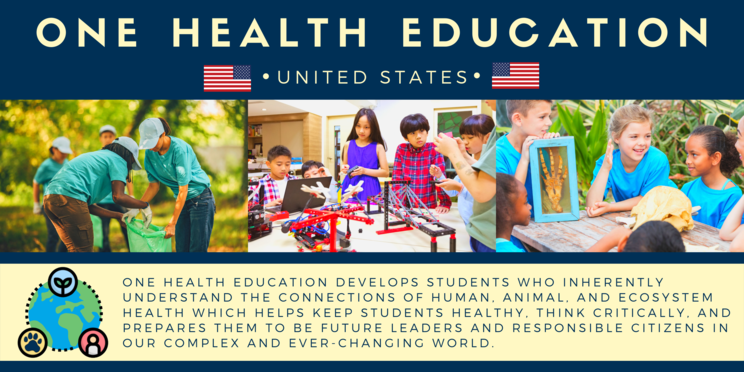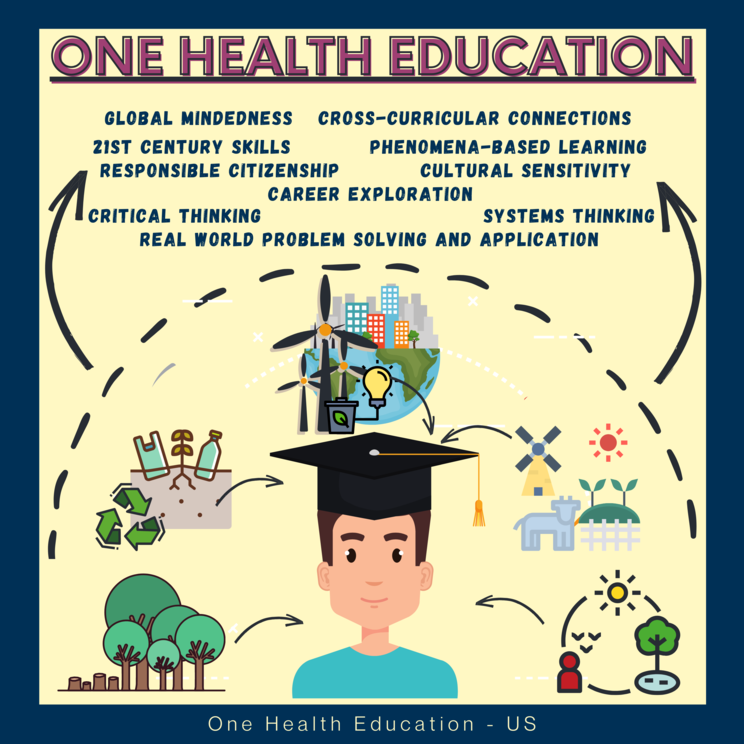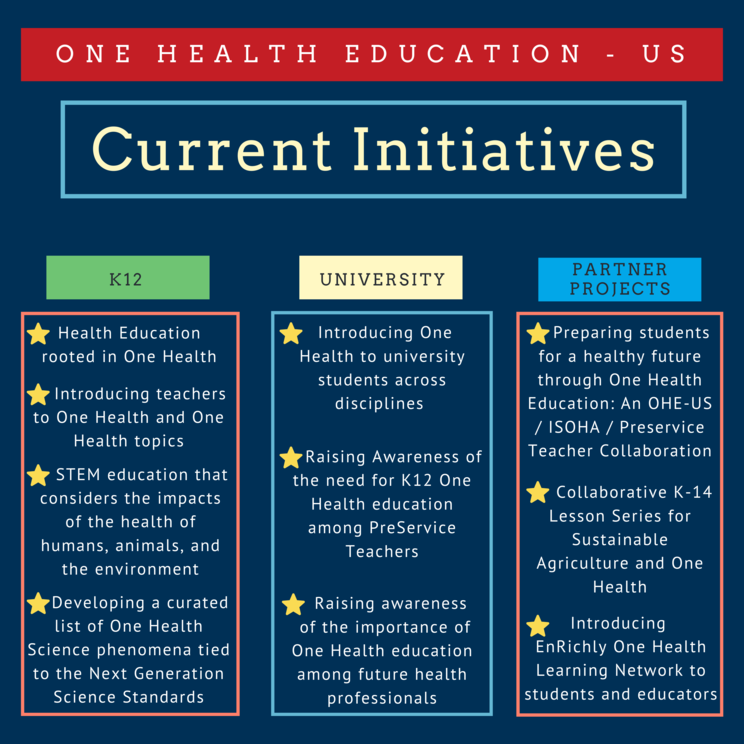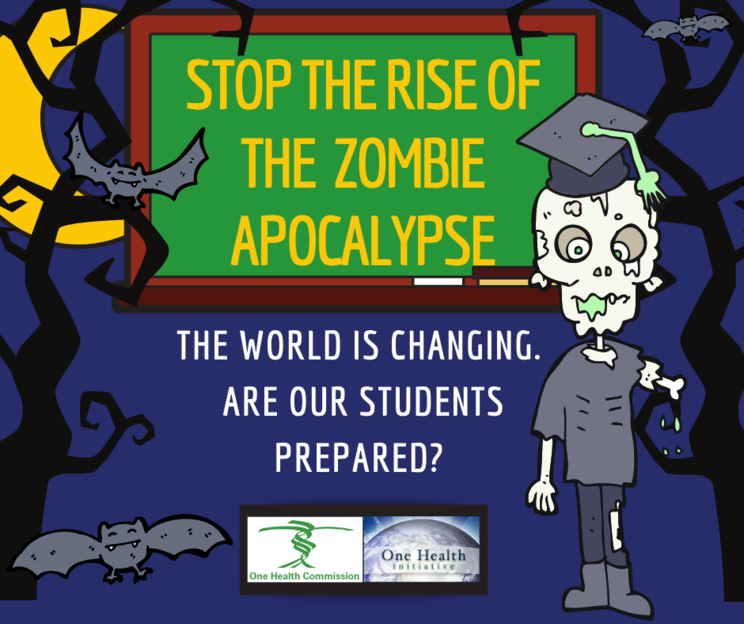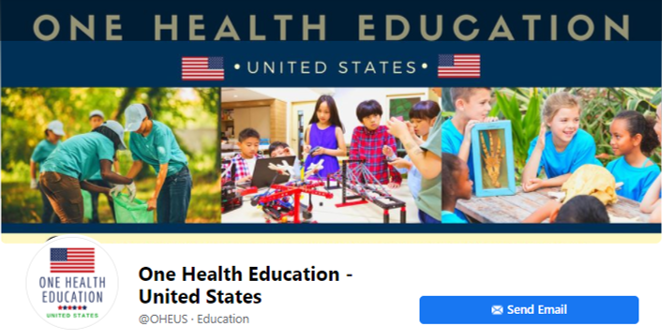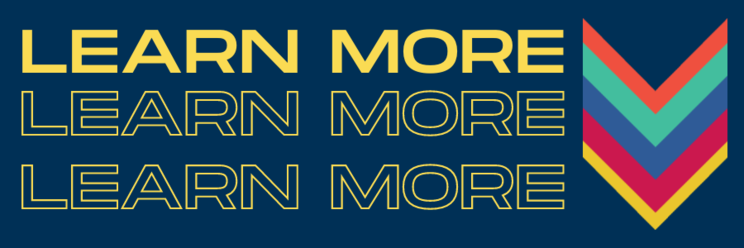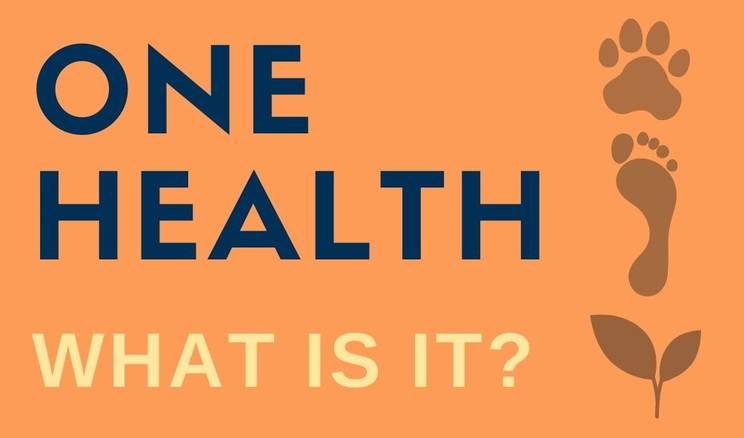Why One Health Education?
We need novel ways to bring curriculum and instruction alive to students! Incorporating One Health concepts into Science, STEM, and health will strengthen curricula and help students develop an inherent understanding of the interconnections among human, animal, and environmental health.
One Health is rooted in cross-disciplinary sharing of information, learning, and collaborations to solve and prevent critical global challenges. One Health Education can provide:
- phenomena-based learning
- cross-curricular connections
- conceptual learning
- real world authentic application, scenarios, and topics
- real life stories to use for lesson impact and hooks
|
- problem-based instruction,
- career exploration
- development of 21st century skills
- cultural sensitivity
- responsible citizenship and global mindedness
- systems thinking
|
|
|
Core Concepts of One Health for K12 Students
1. Humans are one of millions of other species in the kingdom Animalia, and the health and well-being of people is interconnected and interdependent with the health of plants, other animals, ecosystems, and the natural (both terrestrial and aquatic) and built environments around them.
2. Human decisions can influence the health of other humans, other animals, plants, ecosystems, and our shared environments.
3. Cradle to Grave perspective and education fosters lifelong learning, personal / collective accountability, and respect for other life, attitudes, and practices of sustainability in an ever-changing world.
4. Collaborations and cooperation (across sectors and within communities) are needed to prevent and solve Health related issues - a collaborative One Health consideration and approach is needed for optimal health and well-being for humans, other animals, plants, and ecosystems health.
|





